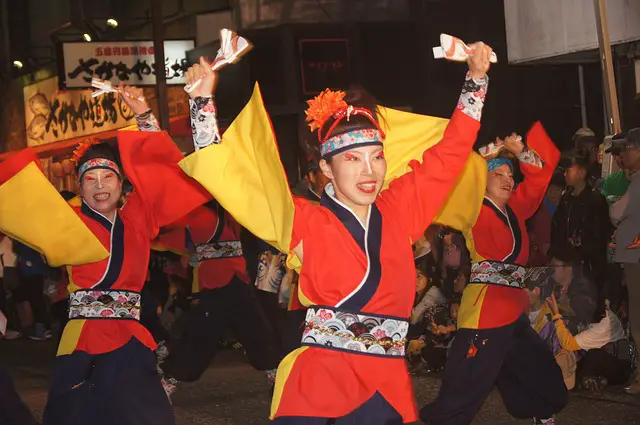
National Holidays in Japan and Their Significance
Starting with the New Year’s Eve, Japan celebrates different national holidays along with the 12 months duration. Hence, if you are planning to visit Japan, a few tips on Japan’s holiday celebration would help understand the culture a bit more closely.
- New Year’s Eve
- Coming of Age Day or Seijin no Hi
- National Foundation Day
- Emperor’s Birthday
- Vernal Equinox Day
- Shōwa Day
- Constitution Memorial Day
- Greenery Day
- Children’s Day
- Marine Day
- Health and Sports Day
- Mountain Day
- Respect for the Aged Day
- Autumnal Equinox Day
- Culture Day
- Labour Thanksgiving Day
How do the Japanese celebrate the national holidays? In Japan, each festival has its own significance. For instance, the New year embarks a fresh beginning for Japanese. Similarly, other festivals too connect with a strong belief. Hence, let’s dig the meaning of other festivals, explained below.
New Year’s Eve – January 1st
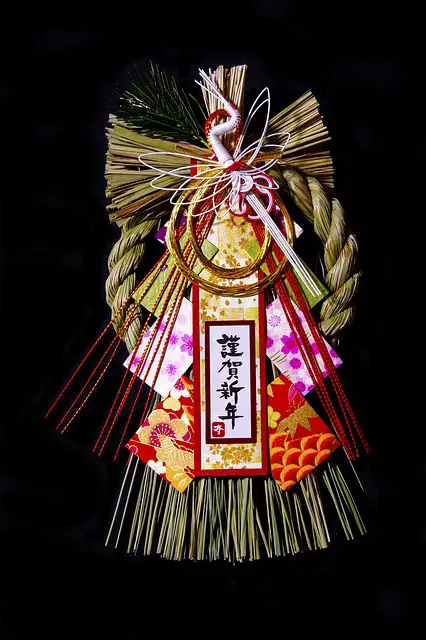
Since 1948, Japan has been celebrating the New year on the 1st of January. Japan welcomes every new year with a positive spirit. If you visit Japan at this time of the year, you would find homes and outlets decorated with bamboo sticks, plum branches, and pine. Each of these objects has some auspicious meaning. Bamboo sticks signify prosperity, plum branches showcase steadfastness, and pine is for longevity. And when tied together, it’s called Kadomatsu which is an ornament that is found at the entrances.
Apart from the decorations, the Japanese are also fond of a variety of dishes. Several dishes have strong meaning and are prepared to take away the misfortune from the last year. For instance, Toshikoshi soba is served hot to cut bad luck and for wishing of long life. People also visit the temple to bring harmony starting from the first day of the year.
However, you may not find a lot of people burning crackers and making noises. The new year celebration is mostly a family affair and those staying away from their paternal homes, do visit back to their respective places. Offices are closed till the 3rd of the month starting from 29th or 30th December.
While you may be thinking about the long Christmas weekend that starts from 25th December itself, in Japan, Christmas does not have much religious attraction. People do celebrate the festival and share gifts, but that is it.
Coming of Age Day – January’s Second Monday
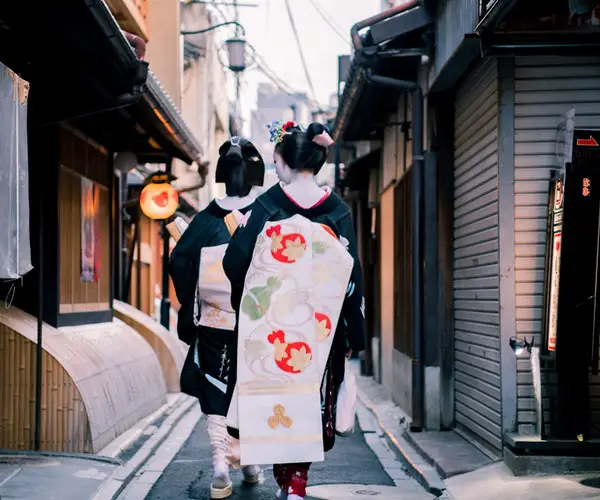
Often called ‘Adult day’, the celebration takes place on the second Monday in the month of January. On this day, people celebrate adulthood. For Japanese, the year counting starts in April and ends in March. Hence, everyone turned or turning 20 between last April to the coming March is the part of the festival.
Right until 1999, there was a specific date set for the ‘coming of age’ and it was 15th January. However, in 2000, to ensure that the celebration goes longer than one day, the Japanese government implemented ‘Happy Monday’. Hence, from then on, young people have more days along with the weekend to celebrate their adulthood.
The local government also takes part in the celebration and organizes ceremonies to offer to preach. Mostly the Mayor of the city explains the various new responsibilities that come along after turning 20.
National Foundation Day – February 11th
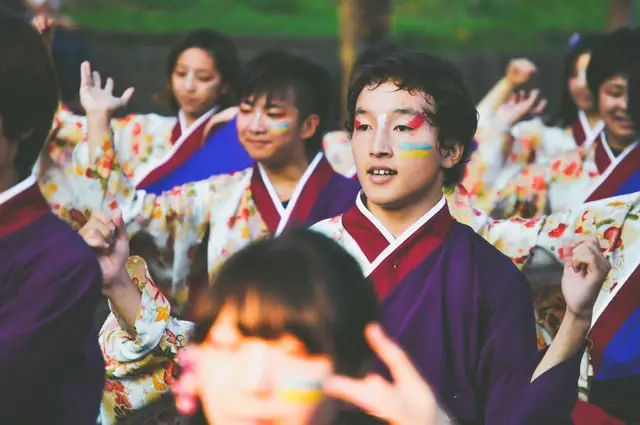
The National foundation day happens on the 11th of February. As the name suggests, the occasion is to remind people of the day when Japan became a nation.
As per their mythological belief, the Japanese imperial family originated from the Goddess of the Sun, Amaterasu. Jimmu, the first emperor of Japan was the grandson of Amaterasu and he was enthroned on this auspicious day.
Although the people here like quite a celebration for the day, there are certain events in Tokyo and a few other cities in Japan that you may attend, during your visit at this time. You can join the national foundation day parade heading to Omotesando Dori if you need to look closer at what the holiday entails.
Emperor’s Birthday – February 23rd
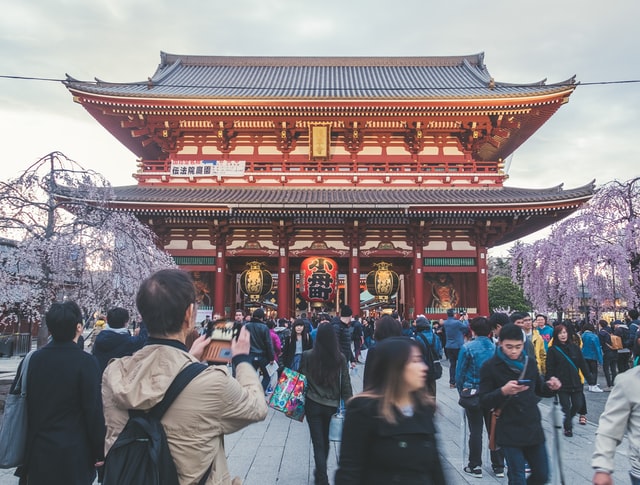
People in Japan have a long-rooted culture. Coming from thousands of years before, there are certain occasions that are auspicious to them even now. And, the emperor’s birthday is certainly one among those.
As you would guess, the date is decided according to the birthdate of the reigning emperor. Currently, Naruhito is the emperor of the country and his birthday is on 23rd February. But, for this specific year 2020, the public holiday for the Emperor’s birthday will fall on 24th February.
But why is that so? There is a very strict rule in the country. Japanese do not like to waste their public holidays. Hence, if a festival falls on Sunday, the public holiday shifts the next day. However, the calculation does not apply to the New Year’s holiday.
In this case, the 23rd of February 2020 is a Sunday. Hence, the public holiday is shifted to the next day. Making the complete weekend a long one. In Japan, they call it a ‘Silver week’.
Vernal Equinox Day – March 20th or 21st

Japan, like other countries, cherishes four seasons in a year and observe the beginning of the spring, the Vernal Equinox Day, as a huge celebration. The occasion comes with the Northward equinox arrival as per the Japanese standard time. And, it usually occurs either on the 20th or 21st of March.
On this day, people honor the past emperors of the country. Hence, it also has religious roots apart from geographical significance.
Shōwa Day – April 29th
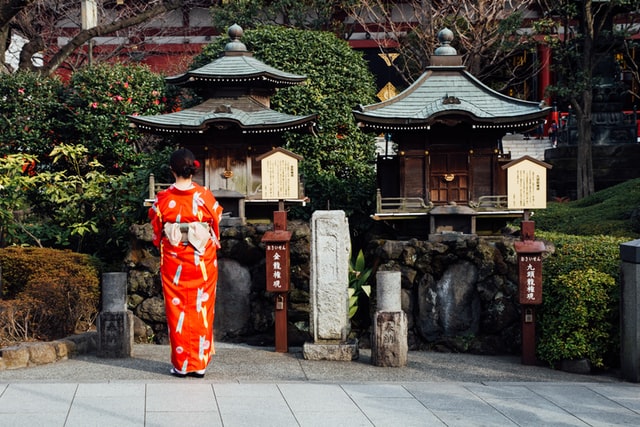
The day celebrated on the 29th April of every year, unless it is a weekend, is to honor Hirohito, the emperor from Showa era. But why is the birthday so important? It is because of the fact that the emperor reigned during the time of 2nd world war. Started as a public holiday in 1948, the national holiday was unticked from the calendar after the death of the emperor in 1989.
However, soon the day was recreated in 2007 but not just as the emperor’s birthday. But Showa Day was introduced to learn from the mistakes of the Hirohito’s reign and carry forward the wisdom and hardship.
Constitution Memorial Day – May 3rd
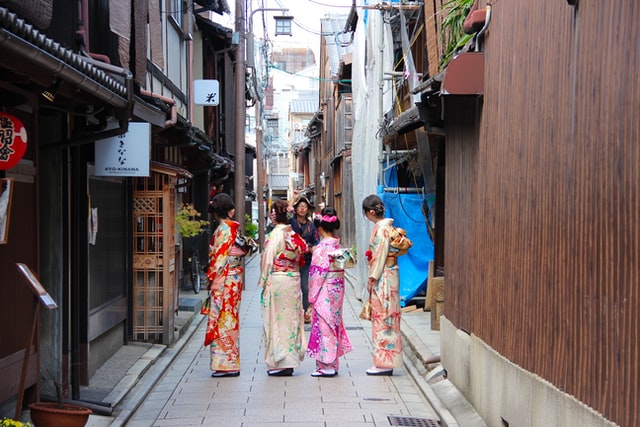
This day, on 3rd May of every year, Japan observe the constitution day to cherish the mark of the new constitution in the country. The beginning of the democracy era started on this day, back in the year 1947. Along with the help of USA General Douglas, Japan drafted the new constitution and it came to force on May 3rd 1947.
In 2020, the 3rd of May is a Sunday. Hence, as per the law, the celebration would shift to the 6th of May as the other two consecutive days are also national holidays.
Greenery Day – May 4th
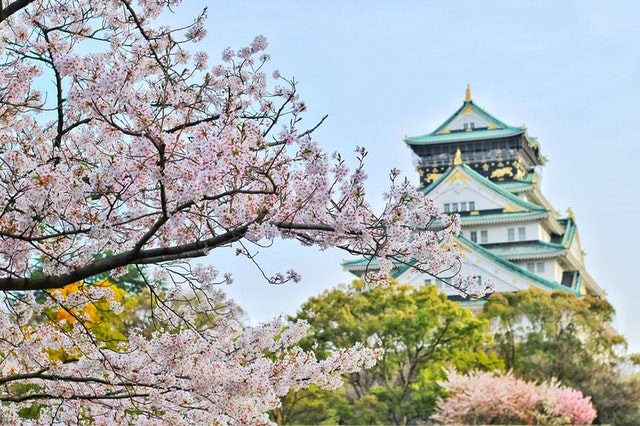
The Greenery day comes on 4th May of every year. Although the day is to cherish nature, its inception has a completely different reason. Right after the death of Emperor Hirohito in 1989, the government took away the Showa Day from the list of National Holidays. However, it did keep the date to celebrate it as Greenery day. The name Greenery day was chosen because the emperor was fond of nature.
But after the Showa day was reintroduced in 2007, the date moved to 4th May. Hence, creating a completely new national holiday for the country. And, one more occasion of celebration and a break from the daily hustle-bustle.
Children’s Day – May 5th
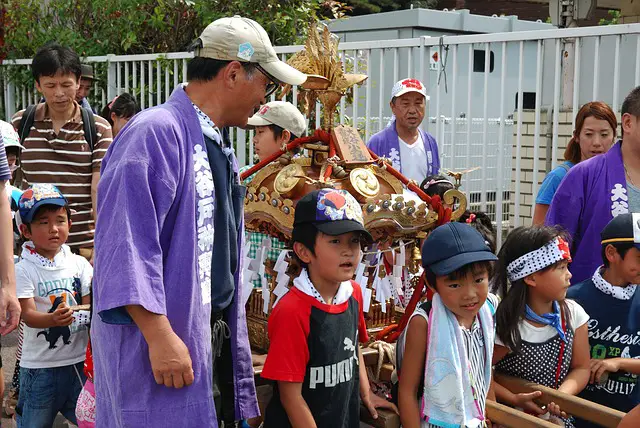
In Japan, people celebrate children’s day on 5th May. However, before the name changed in 1948, Children’s day was known as Tango no sekku. The literal meaning of this is ‘boys’ day’. Because, the girls in Japan already have a separate day, Hinamatsuri, 5th May was designated separately for boys.
But in 1948, the date was renamed as ‘Children’s day’ including girls into the celebration as well. Hence, marking a new national holiday in Japan. However, many people still believe this day for boys.
The good news is that the day is off for both offices and schools. And, you may find various offers for children around the country. For instance, there may be free admission or a minimum fee for children for entering zoos, parks, etc. In case you are traveling with kids, it is better to get an idea beforehand.
Marine Day – July 23rd

Before 2020, the Marine day was celebrated on the third Monday of July. However, now, the date has been fixed to 23rd July. This is just before the start of the Tokyo Olympics.
Marine day, often called ‘Ocean day’ is the day when people thank the ocean that surrounds the country. Japan is an island and oceans connect from all sides of the nation. This is why the country offers special honor to the sea thanking for one more year of prosperity.
But the occasion does have a different reason for inception. The date was pinned as a national holiday after Emperor Meiji returned safely to the Port of Yokohama. Later in 1995, the government dedicated the day to the marine celebration.
On this day, various national aquariums host sports competitions, events, shows, and all related to water.
Health and Sports Day – July 24th
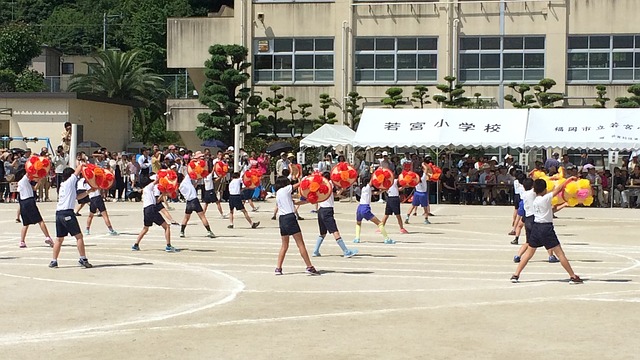
This is when the summer Olympics start. The health and sports day brings with itself the importance of a healthy body and mind. And, motivates everyone to invest time in fitness and healthy eating. It also outlines the benefits of active life by cherishing various sports competitions, headed in Tokyo.
Not just that, even the schools and companies organize sports festival to welcome the celebration from every part of the country.
In the beginning, the health and sports day fell on the 10th of October. Later, it started to be observed on the second Monday in October. However, from 2020, the date has been fixed. And, it will now be celebrated on 24th July.
Mountain Day – August 10th
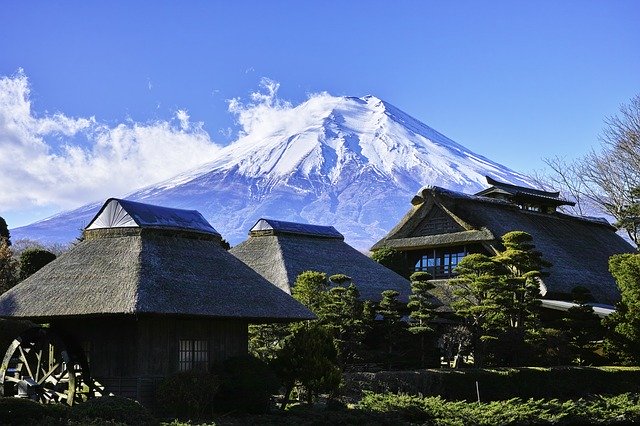
This is one of the most recent additions to the list of national holidays in Japan. The mountain day was announced on a public holiday in 2014. However, the awareness to utilize the day for the right purpose only started to shower from 2016.
At first, the 11th of August was the day reserved for Mountain day celebration. But recently, the date has been shifted to the 10th of August.
The Japanese government tries to encourage people for going out to the nearest mountains for trekking and excursions. Even a few mountains host events to attract visitors on this day. But as I said before, the holiday is a recent addition, and still needs a bit of air to fly above.
Respect for the Aged Day – September’s 3rd Monday
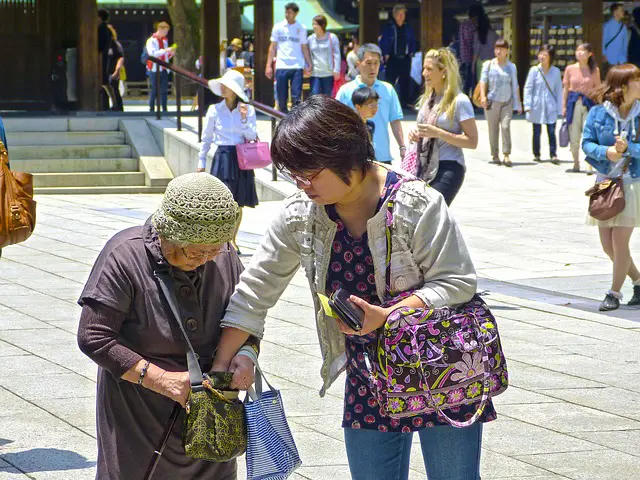
When the national holiday joined the list with other vacations in 1966, people celebrated it on the 15th of September. Later in 2003, the day was reorganized. And now, people visit their elders on the 3rd Monday of September to show gratitude. Hence, recalling it as ‘Happy Monday’.
The shifting of a festive occasion to ‘a Monday’ again is an initiative to bring more holidays closer to weekends. Because there has been a high surge in suicides due to overwork in Japan, a long weekend accompanied by a holiday celebration does feel like a relief. And, the government is trying to implement that in practice too.
Autumnal Equinox Day – September 22nd or 23rd
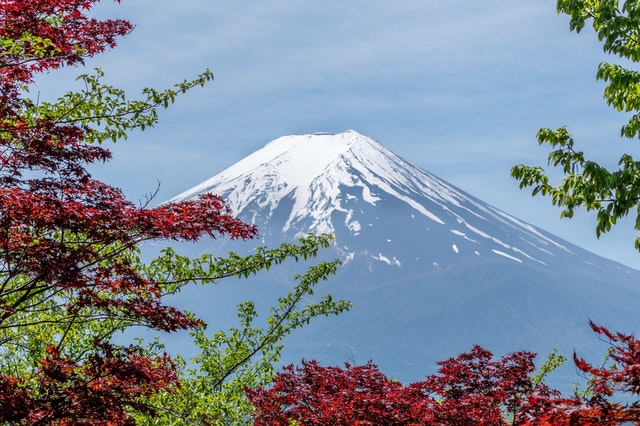
Again, one more holiday welcoming the change in the climate. Autumnal Equinox Day is the mark of cold winters. The date of the celebration varies for different years. And, mostly fall on either 22nd or 23rd of September.
As per the country’s tradition, people visit the grave of their ancestors. Although that isn’t much in practice with very few taking parts in the cultural belief, the celebration still holds great importance.
Moreover, Autumnal Equinox Day comes right after ‘Respect for the Aged Day’. Hence, the combined holiday ties together making a long holiday, however, shorter than the Golden week. Hence the name, ‘Silver week’.
Culture Day – November 3rd
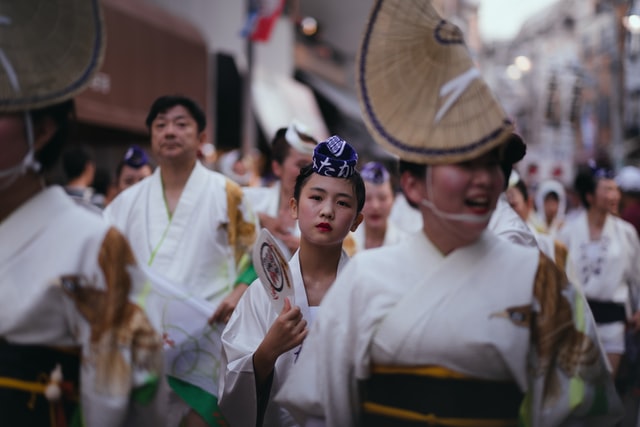
Not very difficult to guess the purpose of the day, isn’t it? Celebrated on 3rd November, the cultural day is to cherish and promote the art and culture of the country. The name does suggest the same.
To make this day special, art museums and galleries in Japan organize special events and art exhibitions. And, at various places, there are free entries to these fests.
If you are in Japan during the cultural day and art is your thing, do visit the cultural festivals. You would get to know a lot about the country’s beliefs and heritage.
Labour Thanksgiving Day – November 23rd
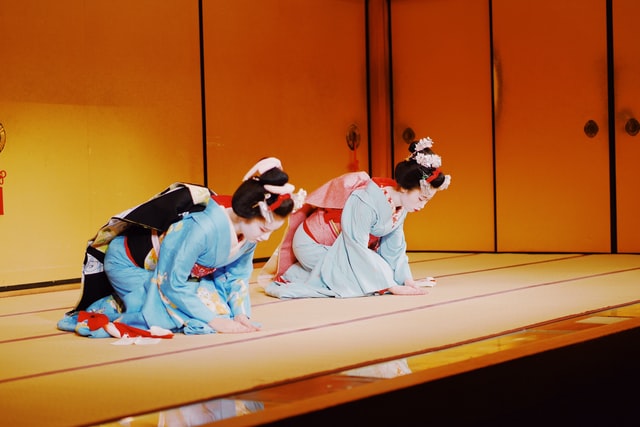
Japan is known for its long working hours. People here work more than the citizens of any other nation. Japanese are hard-working and very disciplined. Hence, there is no surprise seeing a ‘Labour Thanksgiving Day’ in the list of national holidays.
To thanks one another, 23rd November calls for Labour Thanksgiving Day. On this special day, cities in Japan hold different festivals. One such festival is the Nagano Labor Festival which aims at motivating people for caring for the environment, human rights as well as overall peace of the nation.
Students from elementary schools also take part in the celebration by drawing and offering the same as gifts to local police stations. Before the name changed to Labour Thanksgiving Day, the occasion was called harvest festival.
What is a Golden Week in Japan?
Did you check the holiday dates starting from Showa day to Children’s day? They all fall in order with exception to Showa day. There is a two-day gap between Showa day and Constitution day. However, most of the companies and schools are closed starting from 29th April to 5rd May.
Not just that, the Japanese do try to use more days for making the holiday even longer than the designated days. People apply for leaves before and after the holiday to gather a bigger interval for celebration. Hence, this turns out to be the Golden week of the country.
People go on vacation. Visit new countries and meet those they have been longing to see for a long time. You will find a lot of crowds at airports, railway stations, and public transportation services. So, if you are planning to visit the country, you must find out if there is a national holiday in Japan. As you may have to book tickets long before, even when wanting to travel within Japan.
Is Obon a National Holiday of Japan?
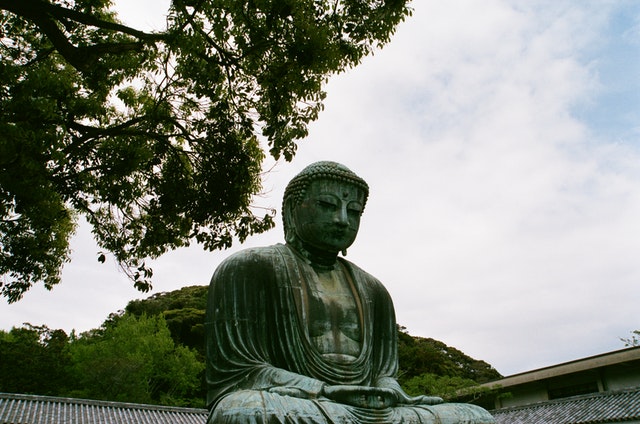
No, Obon isn’t a national holiday in Japan but holds huge importance. Right after Mountain Day, Obon falls. Although it isn’t a national holiday, it does have a very important significance. So, I thought it would be nice to mention it here along with the other vacations.
The date for Obon varies in Japan. It comes every 7th month of the year. Hence, when considering the lunar calendar, it is observed in August. While as per the solar calendar, it appears in July. But the fact that the festival of Buddhists, people follow the lunar calendar instead.
People in Japan believe that the spirits of ancestors return to the earth for visiting loved ones. Hence, most of the offices offer holidays to their employees usually between 13th to 15th of August. So that people can visit their home city and celebrate the occasion with relatives.
However, as I said before, the date varies, depending on when the offices announce leaves.




